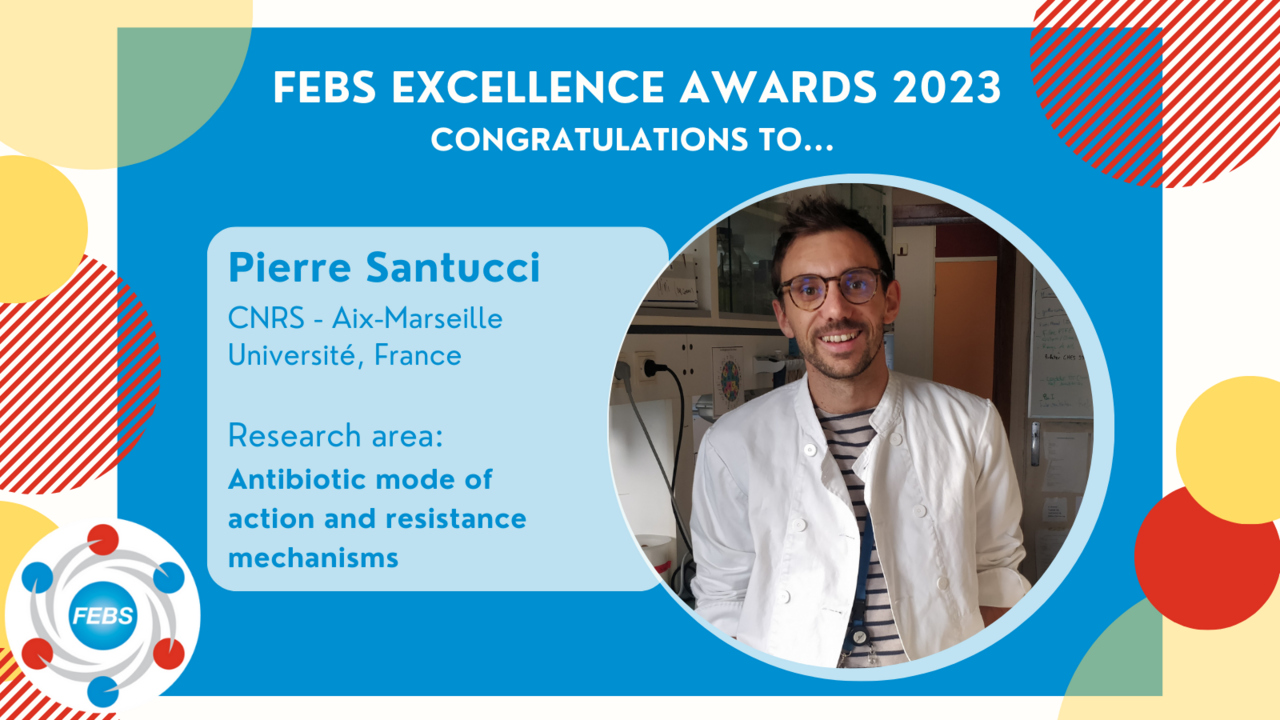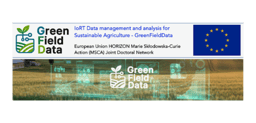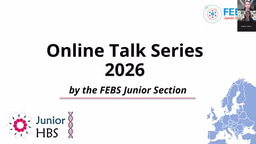FEBS 60th Anniversary – My early- to mid-career journey

Tell us a little about your research area and career stage.
After obtaining my Master and PhD in Molecular Microbiology at the CNRS-Aix-Marseille Université (2014–2018, France), I moved to the laboratory of Maximiliano Gutierrez at The Francis Crick Institute, London, as a Marie Skłodowska-Curie and FEBS Postdoctoral Fellow (2019–2022, UK) to expand my skills in cellular microbiology.
Recruited as a CNRS Research Associate in 2022, I currently lead a thematic group in the Laboratoire d’Ingénierie des Systèmes Macromoléculaires (LISM) - [CNRS - Aix-Marseille Université, Marseille, France] where we aim to further understand the molecular and cellular bases driving Mycobacterium tuberculosis and Mycobacterium abscessus hypersusceptibility and resistance mechanisms to antibiotics. For that, we combine bacterial genetics, antibiotic susceptibility profiling, experimental evolution and single-cell quantitative imaging approaches to identify new biological processes that impact antibiotic efficacy and foster resistance emergence.
You were successful in your application for a FEBS Excellence Award in 2023. What did this mean to you?
At first, it was a huge surprise for our young research group, knowing how competitive and prestigious the FEBS Excellence Award scheme is! This is definitely a massive achievement in so many ways for the lab. I’m so grateful to all my current and former colleagues, with whom I have been working over the years in France and in the UK. The credit goes to all of them because they have widely contributed to shaping beautiful science by sharing and discussing ideas, concepts, experiments and research findings. All our on-going projects have emerged from these discussions, and I personally believe that is probably one of the most exciting things in science. Finally, this award also reflects the continuous trust and support from FEBS for our research. Indeed, some of my postdoctoral stay in the UK was funded by the FEBS Long-Term Fellowship program, and having our work once again internationally recognized for its novelty and quality is mind-blowing. We are very proud of it and very grateful for this privilege.
Have you published a paper in a FEBS Press journal or refereed for a FEBS Press journal? How did you find the experience?
I am a big fan of FEBS Press and I have absolutely no shame in advocating for it! One of my first PhD publications was published in The FEBS Journal and my first publication as co-senior author with Max was published in FEBS Open Bio. Through our experiences, we have always had a fantastic interaction with the editors and benefitted from fast, fair and constructive feedback from the reviewers which is highly appreciated.
Moreover, one cannot go wrong when choosing Society-based journals handled by scientists and for scientists. This is always an excellent home for our publications. This is a lab culture that I try to share with my students and colleagues, explaining how beneficial it is to publish our scientific studies in not-for-profit journals, by really highlighting that the money raised by these publications is the primary source of funding for the Society, which is later used to promote research and education.
As such, I’ve been involved in peer-reviewing for FEBS Press for a couple of years, and I’ve recently joined the Editorial Advisory Board of FEBS Open Bio. Our group tries to prioritise as much as we can Society-based journals including FEBS Press for our upcoming stories, so stay tuned!
Have you attended a FEBS-supported meeting/conference? What did you get out of taking part?
By attending the 48th FEBS Congress in Milan this summer, I’m aiming at the proper hat-trick with a 3-years in a row attendance after the joint IUBMB–FEBS–PABMB Congress in Lisbon in 2022 and the 47th FEBS Congress in Tours in 2023. One of the major strengths of the annual FEBS Congress is the breadth of scientific topics and expertise that is available. I feel that I always learn new things and discover new concepts, technologies or approaches outside of my comfort zone by listening to lectures, talks and having a chat during breaks or poster sessions, so this is really refreshing and super interesting.
On top of that, this year’s edition should be quite special with the celebration of the 60th anniversary of the FEBS, so I’m really looking forward to it.
What FEBS opportunities would you recommend to researchers at your or an earlier career stage?
I’ve attended the FEBS Fellows Meeting – Young Scientist’s Forum (YSF) in Vimeiro, Portugal (2022) and will be attending the FEBS Excellence Awardee Meeting – YSF in Pavia, Italy (2024), and I can testify that this is a great opportunity for any early-career researcher to attend!
The YSF meeting precedes the annual FEBS Congress and is designed for young researchers. It allows them to attend lectures, present their work, discuss ideas, methods and technologies, and build a network with colleagues coming from all over Europe in a young and very friendly environment. I’ll be happily involved in some new mentoring activities launched this year to enhance the interaction between PhD students/postdocs and young group leaders, so these are very exciting times. To conclude, there is an open call for applications each year for the YSF, and the selected participants have their registration and accommodation expenses, as well as most of the travel costs for both the YSF and FEBS Congress covered by YSF grants from FEBS. So, I really encourage everyone to apply and try to get a spot to the 2025 YSF edition!





Join the FEBS Network today
Joining the FEBS Network’s molecular life sciences community enables you to access special content on the site, present your profile, 'follow' contributors, 'comment' on and 'like' content, post your own content, and set up a tailored email digest for updates.